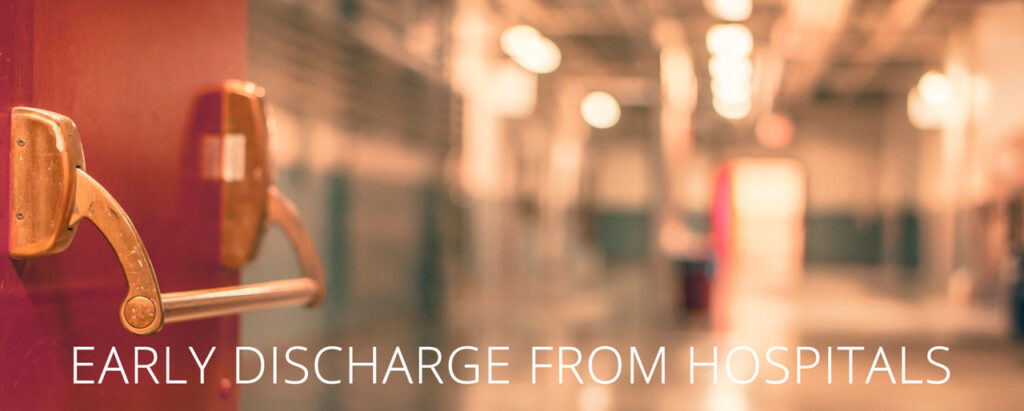Sometimes patients leave
the hospital sooner than they ideally should, and this could either be due to
their own decision or the medical negligence of the professionals; it
is important to distinguish between either the doctor discharging someone early
or an individual leaving earlier than advised upon his or her own accord.
Should the patient
be discharged?
According to an
article from Nolo.com, in the case of an early discharge of a patient by a
doctor or hospital, the question becomes, “Would a similarly-skilled health
care professional have discharged me given my condition and other circumstances
of my treatment?” and if the answer if no, then an individual may have a
potential medical malpractice case.
Examples of issues
that can arise due to a premature discharge include: failing to schedule a
needed follow-up visit, failing to appropriately diagnose and treat the
patient, failing to perform the proper testing before discharge, and failing to
confirm the medical stability of the patient.
There are steps you can take if you are concerned you are being
prematurely discharged from a hospital.
You can ask the hospital staff for your discharge rights, and discuss
with your health care professional your concern that you may be being
discharged too soon.
What if the patient
wants an early discharge?
The situation is reversed when a
patient (or the patient’s power of attorney) wants to leave the hospital and
the provider disallows or strongly advises against it. In these instances, a person is said to be
leaving A.M.A., or against medical advice.
An article in The New York Times discusses a case in which an 82-year-old
man with Alzheimer’s went to the hospital and his family was concerned because
he was known to have sleepless nights and experience confusion in
hospitals. By the next morning, the
doctor still had not treated this man, and in the meantime the patient had
paced for hours, peeled off his heart monitors and grown increasingly
restless. His sister eventually signed
the A.M.A. for him, and she protested that he should have been released right
from the emergency room.
According to the
same article in the New York Times, there are a variety of other reasons why
people may want to leave the hospital ranging from needing to go home and feed
the cat or simply feeling better. It is
important to note that the same article states that, “…those discharged against
medical advice have higher mortality rates and higher rates of hospital
readmissions…”.
What to do if you’ve
suffered from early medical release
If you have been discharged from the
hospital prematurely and you suffered a negative consequence or feel that you
did not receive adequate care, you may have been the victim or medical negligence. If so, please call my office today for a free
consultation.
SOURCES
http://www.nolo.com/legal-encyclopedia/if-youre-discharged-too-soon-is-it-medical-malpractice.html


